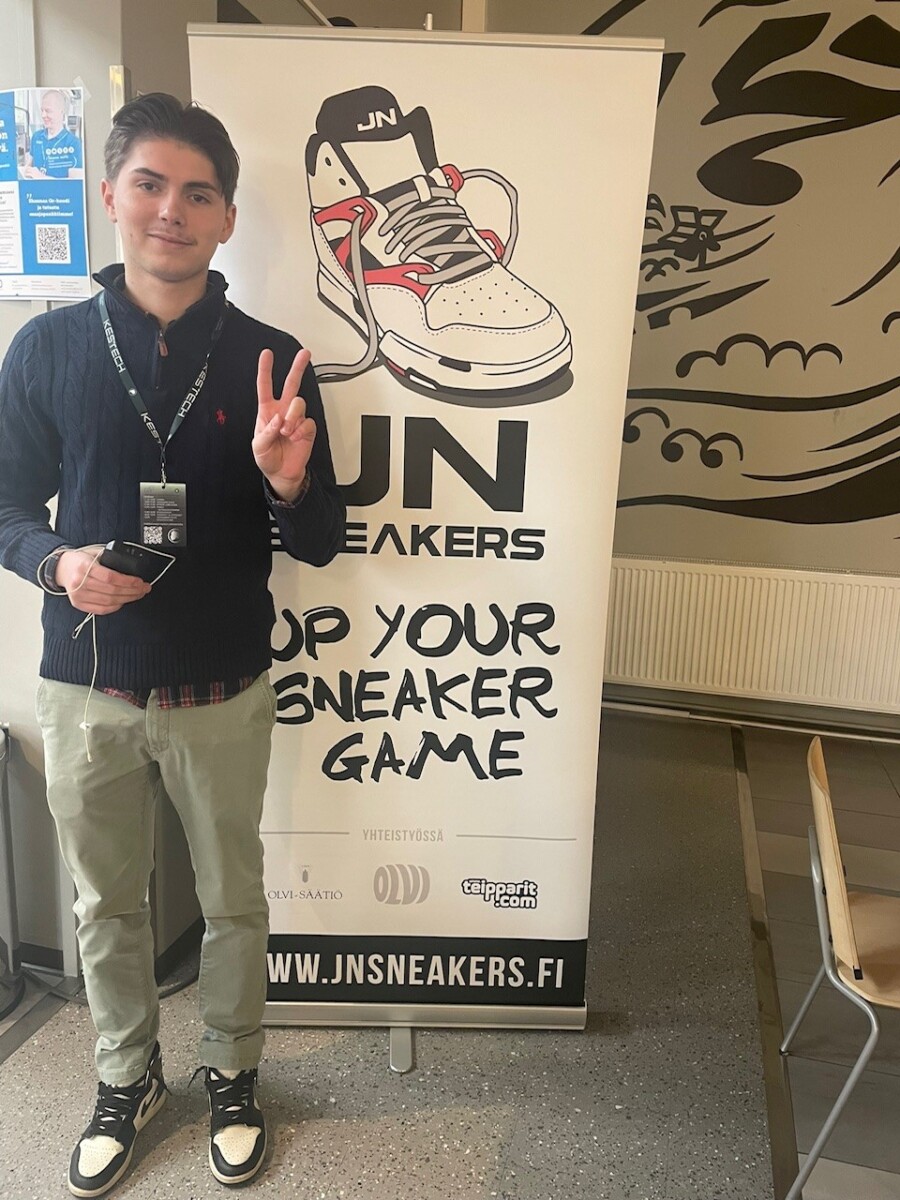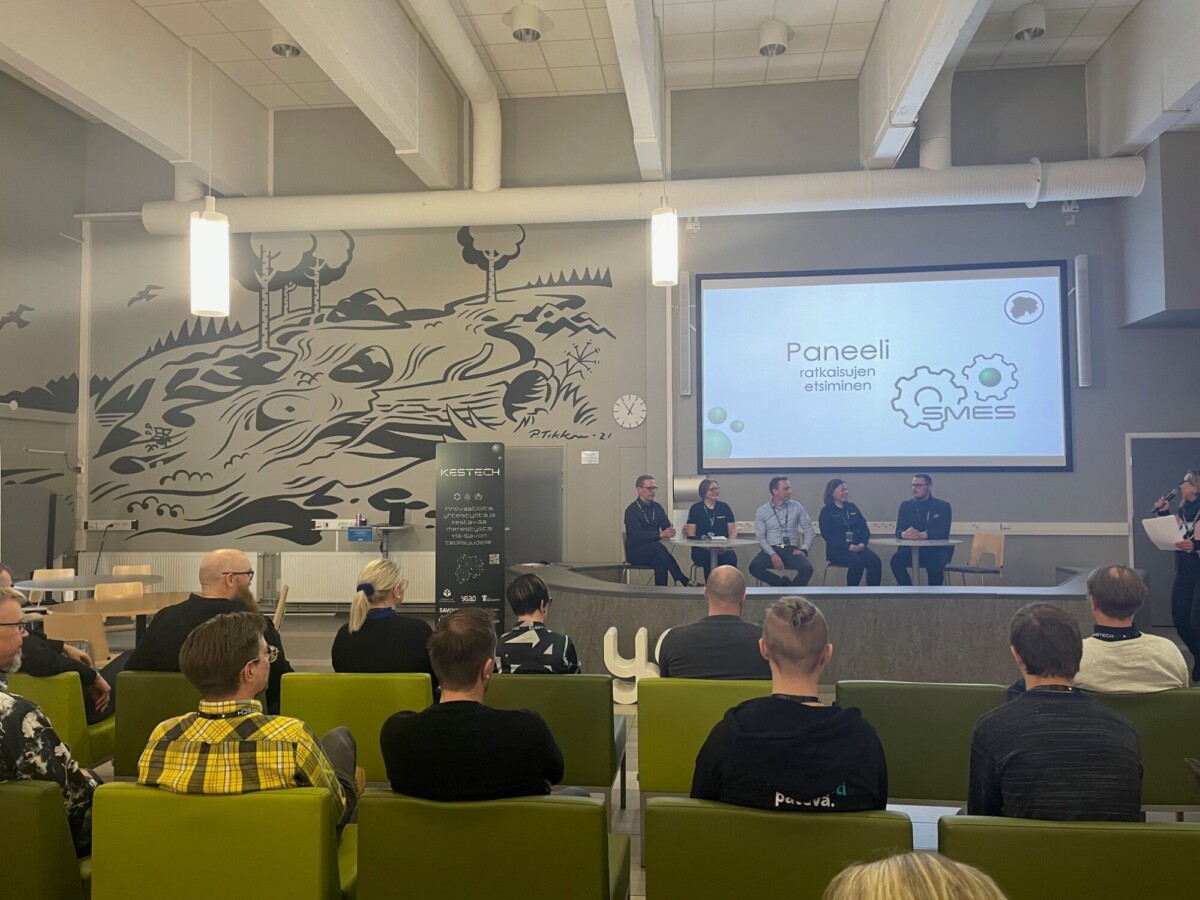
Savonia Article: Addressing the Critical Issues in Upper Savo’s Industry
This work is licensed under CC BY-SA 4.0
What are the pressing issues in Upper Savo’s industry that demand solutions? What factors drive the region’s prosperity? These and many other questions were at the forefront of discussions at the Teknologiatalkoot event held on April 26th, 2024, where representatives from the region’s technology companies and educational institutions gathered to deliberate on these critical topics.
The event began with a lunch, emphasizing that no productive talk can happen on an empty stomach. Post-lunch, the attendees transitioned to the main arena for the core sessions.
Reijo Hynynen, a project manager at KesTech, opened the event with an inspiring speech. He provided a brief history of KesTech, highlighting its journey and future direction towards fostering a vibrant industrial sector in Upper Savo.
Success Stories and Applauses
The first guest on stage was Jorik Hoxha, a young local entrepreneur. Hoxha captivated the audience with his personal success story, detailing his challenges and underscoring the vital role of marketing in his journey. His speech concluded with thunderous applause, setting a positive tone for the subsequent panel discussion.

Panel Discussion: Key Themes
The panel featured industry experts Markku Penttinen, Katja Paananen, Matti Laitinen, Tommi Lähteinen, and Päivi Vestala. They tackled three pivotal themes: skill development, internationalization, and technological advancement in the region.
Skill Development: The panel emphasized the importance of anticipation in education and the recognition of common skill areas across Upper Savo’s diverse companies. Despite the wide array of businesses, identifying intersecting skills could be crucial for ensuring a steady supply of necessary expertise.
Technological Advancement: Discussions highlighted the need for staying at the forefront of technological innovation. While larger companies in the region are well-equipped, concerns were raised about the ability of smaller businesses to keep pace and the trickle-down of data-driven management practices to these smaller entities.
Internationalization: The panelists explored how local companies are integrating international expertise and addressed the insufficiency of Finnish labor. They discussed strategies to enhance the region’s appeal, considering that modern workers seek more than just employment from their living environments.

Interactive Discussions and Networking
The event reached its peak with a coffee break that transitioned into solution-focused discussions. Attendees, who had the opportunity to vote on discussion topics, engaged in meaningful conversations that pinpointed significant insights. The table themes were as follows: Digitalization, International Workforce, Quality, Automation, and Funding instruments.
At the International Workforce Table, the discussion underscored the critical role of labor legislation, occupational safety, and employee self-direction in Finnish work culture, highlighting that newcomers often face challenges in these areas. Effective communication and engagement between companies and educational institutions are essential to address the scarcity of training placements, with recommendations including direct outreach and the implementation of skills passports. Enhancing student mobility and awareness through initiatives like affordable housing and international training programs, were also emphasized as key strategies.
The Quality Table underscored the crucial role of quality in business operations for waste elimination and brand integrity, emphasizing the need for certified Green Belt training in the Upper Savo region to promote continuous learning and enhance regional appeal. Participants highlighted the potential of artificial intelligence to boost process capability and proposed establishing a subnetwork for quality issues among local companies. Additionally, integrating a focus on quality at the start of the order-to-delivery-process was deemed essential.
The Digitalization Table concluded that digitalization efforts should focus on future developments rather than current technologies, exemplified by Nokia’s forward-thinking approach to touchscreens. Digitalization impacts vary significantly across industries, with the term evolving to include a range of needs from AI to the metaverse. Tailored support for SMEs is essential to effectively implement digitalization, especially in using AI and data analytics for daily operations, highlighting the importance of regional cooperation with educational institutions.
The Automation table pointed at companies struggling to meet the rising demand for autonomous devices and the associated regulatory and ethical requirements, particularly in AI. A significant gap in digital education, especially in Upper Savo’s electrical and automation sectors, hinders effective remote collaboration and underscores the need for digital twin technology. Companies need comprehensive support and training in automation, as well as a greater emphasis on legislative understanding in product development education, potentially through more career-oriented, apprenticeship-style programs.
Finally, Funding Instruments Table highlighted the importance of effectively communicating funding opportunities to companies, using national channels and practical fieldwork as the best methods. TechSavo project staff help with preparing development projects, identifying funding options, and writing applications, while KesTech focuses on providing information and guidance. Venture capitalists, business angels, and private investors are commonly used by start-ups; KesTech supports and encourages their involvement where relevant, although specific strategies for engaging these investors were not addressed.
Conclusion
The Teknologiatalkoot event proved to be a fertile ground for exchanging ideas and identifying solutions to pressing issues in Upper Savo’s industry. The collaborative atmosphere, expert insights, and interactive discussions underscored the region’s commitment to growth and innovation. As Upper Savo continues to navigate the complexities of industrial development, events like these will be crucial in shaping its future.
Author:
Agnieszka Laherto, KesTech
Business Coach and R&D specialist in Savonia UAS